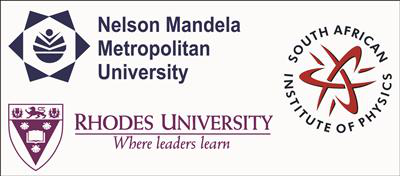Speaker
Apply to be<br> considered for a student <br> award (Yes / No)?
No
Main supervisor (name and email)<br>and his / her institution
Vishnu Jejjala
vishnu.jejjala@gmail.com
Level for award<br> (Hons, MSc, <br> PhD, N/A)?
MSc
Abstract content <br> (Max 300 words)<br><a href="http://events.saip.org.za/getFile.py/access?resId=0&materialId=0&confId=34" target="_blank">Formatting &<br>Special chars</a>
We investigate the firewall paradox proposed by AMPS \cite{AMPS} by first explaining the Information Paradox together with Hawking's derivation of the thermal radiation emitted from a evaporating black hole \cite{Hawking}. We then ask if one can apply arguments similar to that of Hawking and AMPS in the regime of fluid mechanics, which was first considered by Unruh \cite{Unruh}. We assume that a black hole, with a geometry conformal to the Schwarzschild metric, can be formed in a fluid. The sonic hole or dumb" hole, which is characterized by an acoustic event horizon, is the locus of points at which the background fluid is traveling at the local speed of sound. Since sound disturbances are coupled to the background fluid and travel at the speed of sound, the acoustic event horizon affects sound disturbances in a manner analogous to how gravitational black holes affect light \cite{Visser}. Like a gravitational black hole, which evaporates by emitting Hawking radiation, we check if an acoustic black hole will emit in a similar kind of radiation in the form of phonons. This is done by constructing a massless scalar field describing phonon propagation and treating the acoustic black hole just like a gravitational black hole. We apply the arguments put forth by Hawking and AMPS and see if there is any validity to anacoustic firewall" as this would require certain physical phenomena emerging from sub-atomic scales.
Please indicate whether<br>this abstract may be<br>published online<br>(Yes / No)
Yes
Would you like to <br> submit a short paper <br> for the Conference <br> Proceedings (Yes / No)?
Yes

